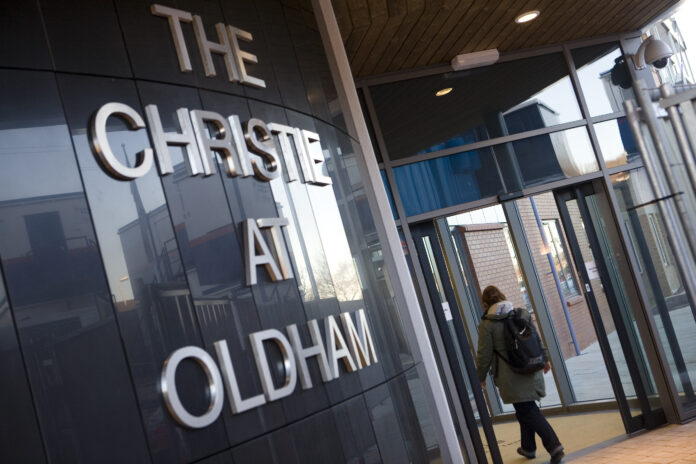The Christie at Oldham, the first in a unique network of local radiotherapy treatment centres, recently celebrated its 15th birthday.
The Christie at Oldham cost £17 million and was funded by donations to The Christie Charity. A further £6.3 million was invested in 2022 to replace two radiotherapy machines and a scanner.
The number of yearly radiotherapy treatments has grown significantly since the centre opened – from just over 11,000 in 2010 to around 17,000 in 2024.
In total, the 38-strong team of radiographers, support workers, nurses, clinicians, engineers, physicists, and admin staff has delivered around 230,000 treatments since opening.
Previously, patients across Greater Manchester and the surrounding areas could only receive radiotherapy at The Christie’s site in Withington, south Manchester. By bringing care closer to home, patients need to travel less and can return to their daily lives more quickly. Outpatient clinics, which used to be held in Withington, have also been moved to Oldham to make access to Christie staff even easier.
Support services have also increased, including complementary therapies, fatigue sessions to help patients cope with treatment side effects, and workshops on living with and beyond cancer. The latest addition is drop-in art classes, which are funded by The Christie Charity and held every other month.
Lead radiographer Julie Davies has managed the Oldham centre since it first opened. She said:
“We are so proud to be celebrating 15 years of delivering cancer treatment and care here in Oldham. Being able to access radiotherapy and other services like the art room locally, rather than having to travel to Withington, means a great deal to our patients.
“It’s important to us that The Christie at Oldham is a part of the community. We receive so much support from local people, and we want to return that goodwill whenever we can. This includes everything from coffee mornings, speaking at local schools and colleges, and visiting places of worship to raise awareness. We also host regular open days and support local food banks. By doing these things, we’re creating opportunities to raise awareness of the signs and symptoms of cancer and hopefully alleviating some of the fear and uncertainty associated with cancer treatment.”
Sixty-one-year-old Michelle Hardiman from Rochdale received radiotherapy for breast cancer at the centre and was the first person to take part in the new art sessions.
“The thing that really stood out to me at The Christie is how they treat you as a whole person, not just a set of symptoms. The medical care is top-notch, but things like the art classes also make a big difference during what can be a difficult and lonely time. You meet people who are going through something similar and who understand how cancer makes you feel. It gives me the opportunity to have a laugh and put it all to one side for a bit. You can’t underestimate how important that is,” she says.
Michelle, who works part-time as a mental health practitioner, was grateful to receive treatment and care in Oldham rather than having to travel to Manchester.
“My treatment left me feeling quite tired,” she adds. “So being able to have my treatment and things like the art room and various other classes closer to home has helped. Everyone at The Christie is so helpful; it has a feeling of security alongside the expertise. The team at the information centre at Oldham know how to guide and help you. You feel you are absolutely taken care of.”
Delivering local and specialist care is a key part of The Christie’s strategy, and patients regularly say how important it is for them to be able to access the highest standards of Christie care as close to their homes as possible.
In addition to Oldham, people can also receive radiotherapy at The Christie at Salford, which opened in 2011, and The Christie at Macclesfield, which opened in 2021. People can also receive chemotherapy, immunotherapy, and blood tests at over 10 convenient locations across Greater Manchester, Cheshire, and Derbyshire.
Certain types of chemotherapy and immunotherapy are also available in people’s homes, with around 9,000 treatments delivered this way each year.







